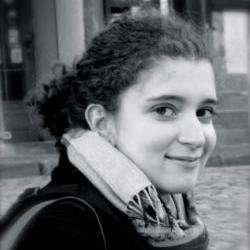Valery Gergiev’s Pleyel concert series devoted to a complete cycle of Shostakovich’s symphonies and concertos ended this week with a concert focused on Symphonies nos. 12 “The Year 1917” and no.8 in C minor. The concerts have been a major event within Parisian musical life, unanimously acclaimed by both audience and critics, thanks to the combination of works and to Gergiev’s and the Mariinsky’s exceptional performance.
Monday's concert began with the brilliant Twelfth Symphony, dedicated to the memory of Lenin. This blazing piece describes Shostakovich’s apparent devotion to the Communist Party so openly that it might have caused some suspicion among the high dignitaries. The brass-hammered heroic themes and general revolutionary frenzy almost convinced us to follow the orchestral crowd in its patriotic momentum, from the rumbling murmur to the rebellion shouts of the first movement, “The Revolutionary Petrograd”.
Gergiev perfectly managed to impart huge energy to all the forces carrying the orchestra: the imperturbable military march leading an entire legion of workers and protesters. This feeling towered above the whole symphony: the four attacca movements were strung together as if nothing could pull them apart, until the “The Dawn of Humanity” final movement. From the fascinating string pianissimos in the second movement “Razliv” to the disturbing pizzicatos that arrive before the “Aurora” (the cruiser that fired at the Winter Palace and began the Russian Revoltion) to the deafening cannon-shots announcing the beginning of the Revolution, the Mariinsky whisked us to the epic year of 1917 described by Shostakovich’s film-music-like symphony.
The Eighth Symphony was written during World War II, just after the battle of Stalingrad. Totally contrasting with the bombast Twelfth, the Eighth may be one of Shostakovich’s most tragic pieces. Though it was subtitled “Stalingrad” by the Party after its controversial première, it significant pessimism is in complete opposition with the Soviet music guidelines — and was banned by the Zhdanov decree of 1948.
In terms of its content, this lengthy symphony makes for a discomforting listen from beginning to end. It nevertheless offered a fine showcase for the Mariinsky's timbres: cor anglais, bassoon, flute and horn especially. A scherzo-like second movement awkwardly follows the long, lyrical first one, just before a motoric, restless third, jostled by frightening rhythmic cells among the brass. Once again, Gergiev drew the best from his musicians: fantastic woodwind solos, impressive brass calls, extreme nuances within the strings - and an extreme dynamic range.
In the very last bars, the sound drained slowly away in a deep despair, hanging from the string bows and resounding in the silence of the Salle Pleyel, lasting a full thirty seconds. The audience responded explosively, awarding Gergiev, the Mariinsky and Shostakovich a standing ovation.


